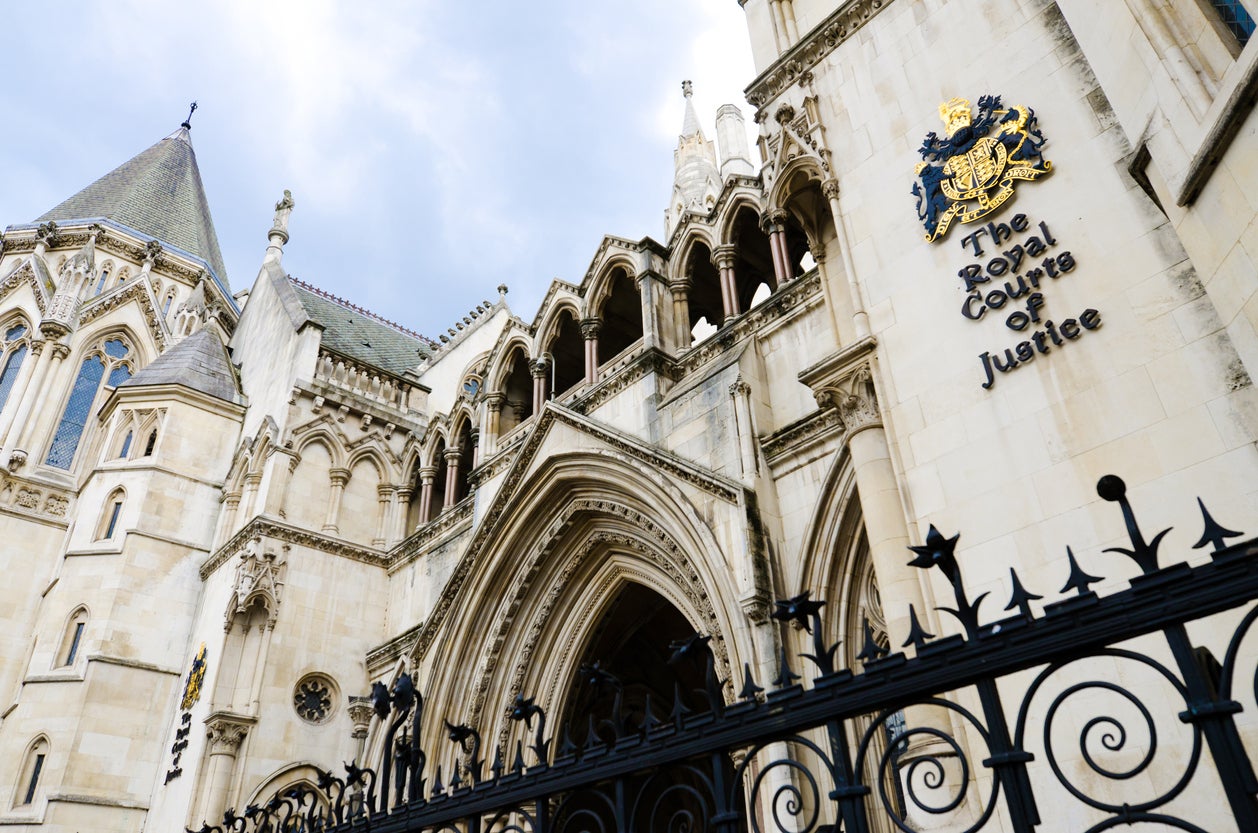Neo-Nazi terror offender ordered to read Jane Austen ‘resumed interest in far-right extremism within days’, court told
Solicitor general calls for Court of Appeal to increase ‘indulgent’ sentence

A neo-Nazi terror offender who was spared jail and ordered to read Jane Austen resumed his interest in far-right extremism within days, a court has heard.
Ben John, now 22, was handed a suspended prison sentence for possessing a terrorist document in August, meaning he will not be jailed unless he breaks the conditions of his licence and a five-year Serious Crime Prevention Order.
Court of Appeal judges are reviewing the term under the unduly lenient sentence scheme, at the request of the attorney general.
Arguing that John should have been jailed, the solicitor general Alex Chalk QC accused John of breaking his promise that he would end all extremist activity.
“We now know that within a week of giving an apparently sincere promise to the judge, he resumed his interest in the far right,” Mr Chalk told the court.
“He began liking Nazi posts online and other extremist activity five days after promising the judge he had put it behind him.”
Mr Chalk did not give details of the material John had viewed after being sentenced in August, but handed judges a package of 20 images.
“Some of the material accessed as recently as this month is very troubling,” he added.
The Conservative MP said John had “broken the very promise he gave to the court”, and urged judges to question “whether the judge was right to take such an indulgent and trusting approach”.
John attended the hearing via video link, wearing a navy T-shirt.
His original trial at Leicester Crown Court heard the student had amassed a wealth of white supremacist, antisemitic and satanic material, as well as explosives manuals.
John’s devices contained videos praising Hitler and propaganda from the neo-Nazi terrorist groups National Action and Atomwaffen Division, as well material from the extremist occult movement the Order of Nine Angles.
A jury convicted him of one count of possessing information useful to a terrorist over the Anarchist Cookbook, which contains instructions on how to construct various explosive devices.
John was acquitted of six other counts of the same offence, after saying he did not know what the documents contained.
Judge Timothy Spencer QC sentenced him to two years imprisonment, suspended for two years, and ordered him to fulfil the terms of a Serious Crime Prevention Order and tagged curfew.
The judge had told John he could not suspend the sentence “unless you give me an undertaking now that your interest in far right ideologies ends today”, and he stopped looking at material online.
John replied “I promise”, and entered an exchange with the judge about alternative reading material.
“Have you read Dickens? Austen? Start with Pride and Prejudice and Dickens' A Tale of Two Cities. Shakespeare's Twelfth Night. Think about Hardy. Think about Trollope,” the judge said.
Judge Spencer labelled John a “sad fantasist”, saying he did not have any terrorist motivations himself and was not likely to cause harm.
At the time of his arrest in January 2020, John was studying for a criminology and psychology degree at the University of Leicester, but the judge rejected his claims that the research was a “mere academic fascination”.
Reports of the sentencing sparked fierce debate, and comparisons with terms given to other young people for the same offence.
Mr Chalk said John was “warned again and again” over the consequences of his behaviour and “failed to respond positively” to attempted interventions by the Prevent counter-extremism programme.
Following the discovery of a letter in 2018 describing himself as part of the “Lincoln fascist underground” and threatening action, John was put on the Channel intervention scheme.
Mr Chalk said the case was closed in October that year, “following several intervention sessions at which he appeared to engage well”, but he continued his online extremist activity.
“We say a suspended sentence of two years was too low,” he added. “The offender was a confirmed far-right extremist captivated by a poisonous ideology … it’s possible he still is.”
The hearing, before Lord Justice Holroyde, Mr Justice Lavender and Sir Nigel Davis, continues.



